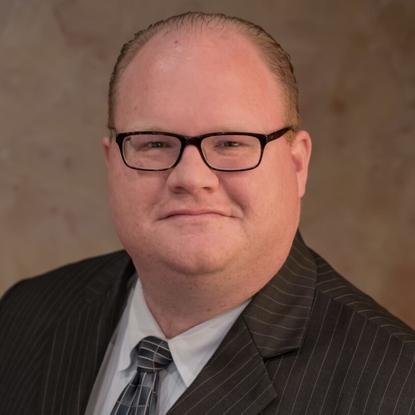
Bankruptcy FAQS
GAIN INSIGHT FROM OUR FRESNO BANKRUPTCY ATTORNEYS
At Fear Waddell, P.C. our Fresno bankruptcy attorneys understand that clients have many questions as they consider going through bankruptcy. We are happy to provide you with the tools and knowledge you need to make an informed decision about how best to handle your financial future. Below, we have compiled some of the most frequently asked questions we receive. If you do not see your question below, feel free to contact us for more answers.
Can Bankruptcy Stop My Creditors from Constantly Calling Me?
Yes. As soon as you file a bankruptcy petition, Section 362 of the United States Bankruptcy Code prohibits creditors from taking most actions to collect a pre-petition debt. This is called the automatic stay, and it prohibits most calls from creditors. If you hire one of our attorneys, you can instruct your creditors to contact us on your behalf.
Do I Need an Attorney to File Bankruptcy?
There is no legal requirement that individuals must have an attorney file a bankruptcy petition. However, the bankruptcy law can be complicated, and a bankruptcy attorney can help walk you through the process.
There are two main benefits to hiring a bankruptcy attorney:
- Maximizing the benefits of bankruptcy
- Avoiding serious mistakes
Bankruptcy has many obscure provisions that could be quite beneficial to you. Unless you hire a competent bankruptcy attorney, however, you may miss the benefit of these provisions altogether. For example, bankruptcy allows you to avoid judgment liens in some situations. However, you have to take affirmative action to do so, and unless you know how to do this, you would lose the benefit.
A bankruptcy attorney can also help you avoid serious mistakes. There are provisions in the code, for instance, that allow a bankruptcy trustee to recover property transferred within a certain amount of time. If you transferred property to your children three years before filing bankruptcy, a bankruptcy trustee would likely be able to sue your children to recover that property.
There are many potential pitfalls to filing bankruptcy, but a competent bankruptcy attorney can help you address these and plan for them before filing bankruptcy.
What Are the Different Types of Bankruptcy?
There are five different types of bankruptcy. They are identified by the chapter in the bankruptcy code that discusses them.
They are as follows:
- Chapter 7 (Liquidation)
- Chapter 9 (For municipalities)
- Chapter 11 (Business reorganization)
- Chapter 12 (Re-payment plan for family farmers and fisherman)
- Chapter 13 (Re-payment plan for those with regular income)
Chapters 7 and 13 are most frequently used by consumer debtors. Chapter 11 has historically benefited corporations and businesses with high-value assets, but recent legislation has provided a streamlined path for small business owners. Chapter 9 is rarely used. Chapter 12 is similar to Chapter 13, except that it has special provisions for family farmers and fishermen. Chapters 7, 11, and 13 are discussed in more detail below.
What Type of Bankruptcy Should I File?
Each type of bankruptcy has its own advantages and disadvantages, and a thorough discussion of each is beyond the scope of this website. (There are volumes dedicated to the subject.) While bankruptcy can provide effective debt relief, bankruptcy law contains many traps for the unwary. A competent bankruptcy attorney can help you determine whether to file bankruptcy, what chapter to file, and how to avoid these traps.
What is Chapter 7 Bankruptcy?
“Chapter 7″ refers to Chapter 7 of the United States Bankruptcy Code (Title 11). Chapter 7 is also known as liquidation bankruptcy because the debtor turns all non-exempt assets over to the Trustee to be liquidated and paid to creditors. In most cases, however, the debtor is able to exempt all of his assets. This is called a “no-asset” bankruptcy case.
If you want a simple word picture for Chapter 7 bankruptcy, think of a giant bucket. The debtor puts all of his property into the bucket before filing bankruptcy. Then, he goes through and determines what items are exempt. All of the exempt items get taken out of the bucket. Whatever is left in the bucket is sold to pay creditors. If nothing is left, it is a no-asset bankruptcy.
What Are Exemptions?
You may be asking, “what are exemptions?” or “how do I know what is exempt?” Exemptions are provided by California state law and they provide that a debtor can keep certain amounts of several different types of property. There are two different exemption schemes in California and the rules regarding exemptions can be complex. Even if you do not have all of your property in an exempt form now, a Fresno bankruptcy attorney can advise you how to (if it is possible) put that property into exempt form so that it would not be lost in a Chapter 7 bankruptcy filing.
What is the Timeline for a Typical Chapter 7 Bankruptcy Case?
Upon filing the Chapter 7 petition, a Chapter 7 Trustee is appointed and a date is set for the meeting of creditors. The meeting of creditors is usually about 30 days after the petition is filed. Unless a complaint to deny the discharge has been filed, the discharge is usually entered about 90-120 days after the Chapter 7 petition is filed. This is the timeline for a typical no-asset bankruptcy case. The bankruptcy case is closed after the Trustee administers all of the assets (if any) of the estate.
What Is Chapter 11 Bankruptcy?
Chapter 11 is a form of debt reorganization geared toward businesses. Historically, only large businesses and corporations have been able to maintain ownership of their companies while filing bankruptcy because Chapter 11 is the most expensive, complex, and time-consuming path. But the Small Business Reorganization Act added Subchapter V to Chapter 11, which is exclusively available to small business owners and sole proprietors. Subchapter V provides additional opportunities for small business owners to lessen their burdens, keep most of their assets, and rescue their companies from financial ruin.
Can I Modify My Mortgage Under Chapter 11?
If you took out a mortgage from your residence to finance your business, you may be able to modify or even discharge the loan. To qualify, you must file under Subchapter V as a small business owner with less than $2,725,625 in debt. You must also have accrued at least half of this debt through commercial or business expenses.
When you file Chapter 11, you will establish a 3-5-year repayment plan. Once you use all of your disposal income to pay your creditors during this time, unsecured debt (like the second mortgage you took out to finance your business) may be discharged.
Will My Creditors Need to Approve My Repayment Plan Under Chapter 11?
Yes, with certain exceptions. Depending on the amount of debt you owe, the size of your business, and any existing court order, creditors may vote to approve your repayment plan.
If you are filing under Subchapter V as a small business owner, you will not need your creditors’ approval. However, a vote of approval from your creditors could benefit you, as your post-petition assets may be subject to their claims if they don’t vote during your bankruptcy filing.
What is a Chapter 13 Bankruptcy?
“Chapter 13″ refers to Chapter 13 of the United States Bankruptcy Code (Title 11). In Chapter 13 cases, the debtor proposes a plan to pay back at least some of the debts that are owed. Chapter 13 is often used when Chapter 7 is unavailable for some reason, e.g., if the debtor’s income is too high to qualify for a Chapter 7.
Chapter 13 also has many benefits over Chapter 7 as described in more detail below. In a Chapter 13, the debtor keeps all of his property, but pays a set amount each month to the Trustee pursuant to a Chapter 13 Plan the debtor proposes.
Chapter 13 Plans usually last 3 to 5 years. After all of the Plan payments have been made, the debtor receives a discharge of even more debts than would be discharged in a Chapter 13. Chapter 13 is more complicated than Chapter 7 and care should be taken in deciding whether to file Chapter 13.
What is the Timeline For a Chapter 13 Bankruptcy Case?
The timeline for a Chapter 13 case is different for every case and depends upon the Plan proposed by the debtor and the jurisdiction in which the case is filed. Most plans are required to last 3 years, but Chapter 13 plans may not run longer than 5 years. The meeting of creditors usually takes place within 30-60 days after the petition is filed. The time from the filing of the petition to plan confirmation for an uncontested case can take anywhere from 25 days to 270 days depending on the jurisdiction. The average is approximately 90 days.
My House Is in Foreclosure. Can a Chapter 13 Bankruptcy Filing Help Save My House?
Possibly. If your house is in foreclosure, that probably means you have a substantial arrearage on the mortgage. Most debtors are unable to pay an accrued arrearage immediately (unless the property can be refinanced) and mortgage holders are reticent to cancel foreclosure proceedings unless the entire arrearage has been paid. Thus, unless something is done, the debtor is often in a situation where the house will be foreclosed upon. Chapter 13 allows the debtor to stop the foreclosure (it cannot proceed because of the automatic stay) and pay the arrearage over time.
What Are the Benefits of Filing a Chapter 13 Bankruptcy?
There are many benefits to filing a Chapter 13 bankruptcy, as opposed to a Chapter 7 bankruptcy. These are only some of the benefits of Chapter 13 when compared to Chapter 7.
Super-Discharge. The discharge in Chapter 13 cases is broader than the Chapter 7 discharge. For example, the Chapter 13 discharge includes debts related to violation of federal securities law, and many fines or penalties owed to governmental units, none of which would be dischargeable in a Chapter 7 case.
Avoid Foreclosure. Chapter 13 allows debtors who have an arrearage on a mortgage to pay off the arrearage through a Chapter 13 Plan. As long as the plan is confirmed and all payments are made, the mortgage holder cannot foreclose on the property. In Chapter 7, the secured creditor will almost always be granted relief from stay to foreclose on the property.
Lien-Stripping. Where the amount of a secured debt is more than the value of the property it secures (i.e., it is undersecured), the debt is bifurcated and that part of it that is over the value of the property is treated as unsecured debt. Unsecured debt and secured debt are treated differently in Chapter 13 cases. Secured debts must be paid in full (with interest), but unsecured debt does not have to be paid in full. Thus, for most undersecured debts, the debtor may be able to pay substantially less than he would have had to otherwise.
Debtor Keeps All Property. In a Chapter 13 case, the debtor is allowed to keep all property, including non-exempt property. This is especially important for some people whose primary source of income is rental property.
How Would a Bankruptcy Filing Affect My Credit Rating?
Unfortunately, there is no clear answer to this. A bankruptcy filing can stay on a credit report for up to 10 years. If you are contemplating filing bankruptcy, your credit may already be bad and bankruptcy may not make it significantly worse.
In some situations, bankruptcy may allow you to improve your credit worthiness faster than you could have otherwise because most of your debts are cancelled. However, there is no guarantee you will be able to get new credit after filing, and it will probably take several years to rebuild your credit. It is important, however, to use such credit wisely.
In addition, with a Chapter 13 case, the discharge (cancellation) of your debts does not occur until the end of the Plan, so you would only have the ability to start rebuilding your credit after the Plan has been completed.
Can a Bankruptcy Filing Help Me “Clean Up” My Credit Report?
After you obtain a bankruptcy discharge, creditors are required to report your debts as discharged in bankruptcy. While the bankruptcy will be on your credit report and the debts might still be listed, those potentially offering you credit will also see that you no longer have the substantial debt burden that you had before the bankruptcy filing.
This, of course, is no guarantee that you would be more likely to obtain credit after filing bankruptcy. And, as discussed above, a bankruptcy will almost certainly negatively affect your credit in the short term.
What Should I Do if My Credit Report Is Inaccurate?
A good first step is to notify the creditor and the credit reporting agency in writing of the error. If nothing is done to correct your report, you may have legal recourse under the Fair Credit Reporting Act. For information on how to dispute your credit report, go to https://www.consumer.ftc.gov/.
Get personalized help from a Fresno bankruptcy lawyer calling (559) 418-3022 or by scheduling a case evaluation today.




